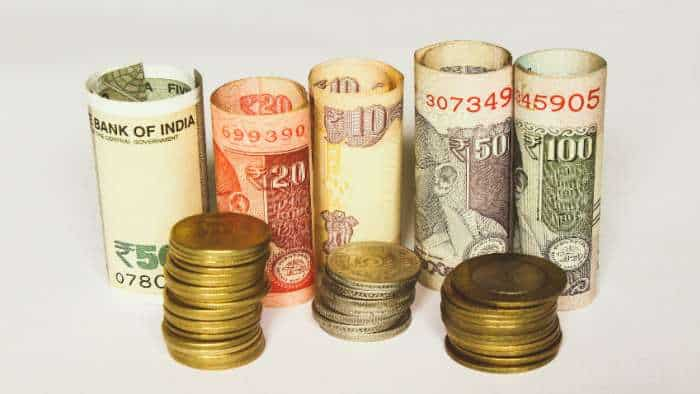Global stocks slide, oil jumps as Russia orders troops to Ukraine regions
Oil jumped to a seven-year high, safe-havens rallied and U.S. stock futures dived on Tuesday as Europe`s eastern flank stood on the brink of war after Russian President Vladimir Putin ordered troops into breakaway regions of eastern Ukraine.

Oil jumped to a seven-year high, safe-havens rallied and U.S. stock futures dived on Tuesday as Europe`s eastern flank stood on the brink of war after Russian President Vladimir Putin ordered troops into breakaway regions of eastern Ukraine.
Brent crude futures rose 1.6% to $96.94, just off their overnight seven year high. S&P 500 futures fell 1.5% and Nasdaq futures fell 2.2%. Asian stocks were also down over half a percent, while Japan`s Nikkei skidded sharply.
See Zee Business Live TV Streaming Below:
The Russian rouble briefly touched an 18-month low in early Asia trade on Tuesday, after Russia`s MOEX equity index had fallen 10.5% the day before.
Spot gold, in contrast, hit a new six-month top of $1,911.56. [GOL/]
Putin on Monday recognised two breakaway regions in eastern Ukraine as independent and ordered the Russian army to launch what Moscow called a peacekeeping operation into the area, upping the ante in a crisis that could unleash a major war.
A Reuters witness saw columns of military vehicles including tanks early Tuesday on the outskirts of Donetsk, the capital of one of two breakaway regions, and Putin signed treaties with leaders of the two breakaway regions giving Russia the right to build military bases.
Washington and European capitals condemned the move, vowing new sanctions. Ukraine`s foreign minister said he had been assured of a "resolute and united" response from the European Union.
But it was not immediately clear whether the Russian military action would be regarded by the West as the start of a full-scale invasion.
Following Russia`s latest move "we are much closer to military intervention, which of course is going to drive a lot of the risk off sentiment in the markets,” said Carlos Casanova, senior Asia economist at UBP, adding the short term volatility in markets caused by both geopolitical factors and the U.S. Federal Reserve was `relentless`.
Casanova said the consequences would be higher oil prices, an equity sell off, and people flocking to safe haven assets like the Japanese yen.
MSCI`s broadest index of Asia Pacific shares outside Japan lost 0.66% in early trade on Tuesday and Japan`s Nikkei tumbled 1.6%.
In currency markets, the safe-haven yen rose as much as 0.2% in Asia to a nearly three-week high of 114.50 per dollar, before paring its gains.
The euro fell 0.1% to a one-week low of $1.1296
"In these circumstances, risk metrics are the driving force," said NAB head of foreign exchange strategy, Ray Attrill.
The nerves also drove U.S. Treasury yields lower, with benchmark 10-year Treasury yields diving as much as 5.5 basis points to 1.8715%. Bets on Federal Reserve rate hikes also eased and the chance of a 50-bp hike next month fell below 1-in-5.
U.S. policy makers have been sparring publicly about how aggressively to begin tightening.
Federal Reserve Governor Michelle Bowman said on Monday that she will assess incoming economic data over the next three weeks in deciding whether a half percentage point interest rate rise is needed at the central bank`s next meeting in March.
Get Latest Business News, Stock Market Updates and Videos; Check your tax outgo through Income Tax Calculator and save money through our Personal Finance coverage. Check Business Breaking News Live on Zee Business Twitter and Facebook. Subscribe on YouTube.
RECOMMENDED STORIES

Latest FD Rates: Know what SBI, PNB, Canara Bank, HDFC Bank, ICICI Bank are providing on 1-year, 3-year and 5-year fixed deposits

Top 7 Flexi Cap Mutual Funds With up to 52% SIP Return in 1 Year: Rs 20,000 monthly SIP investment in No. 1 fund has generated Rs 3.02 lakh; know about others too
07:34 AM IST









 Not obligatory for platforms to be registered with SEBI; board clarifies on specified digital platforms
Not obligatory for platforms to be registered with SEBI; board clarifies on specified digital platforms Japan stocks lift Asian market higher after US retail data boost Wall Street
Japan stocks lift Asian market higher after US retail data boost Wall Street  Sensex, Nifty likely to open in the green; GIFT Nifty futures surge over 250 points amid positive global cues
Sensex, Nifty likely to open in the green; GIFT Nifty futures surge over 250 points amid positive global cues Asian Market News: Stocks are mixed after gains on Wall Street
Asian Market News: Stocks are mixed after gains on Wall Street Stock market today: Asian stocks advance after Wall Street closes out another winning week
Stock market today: Asian stocks advance after Wall Street closes out another winning week